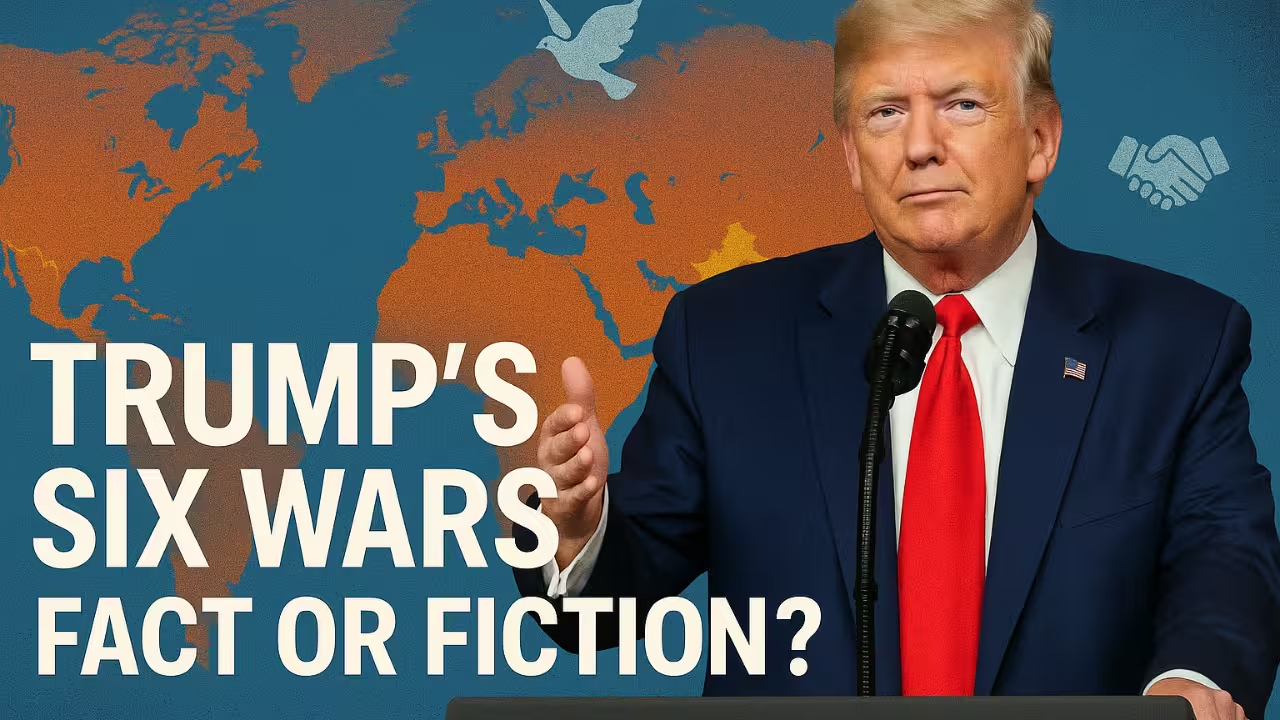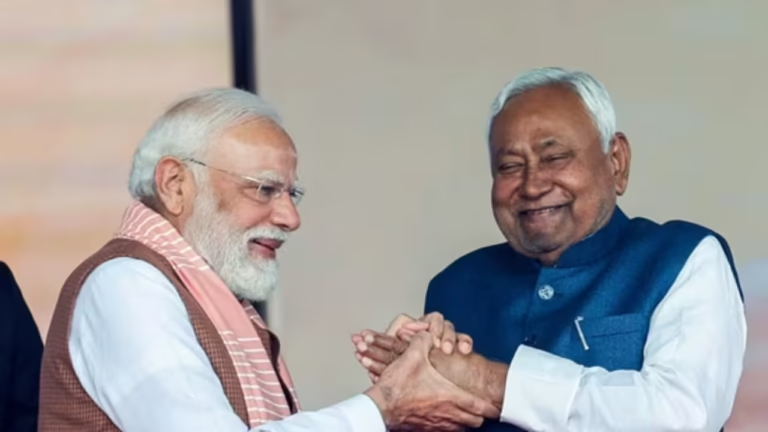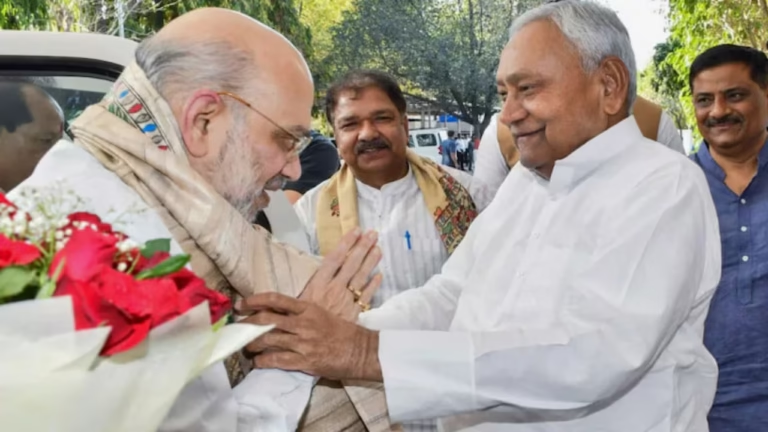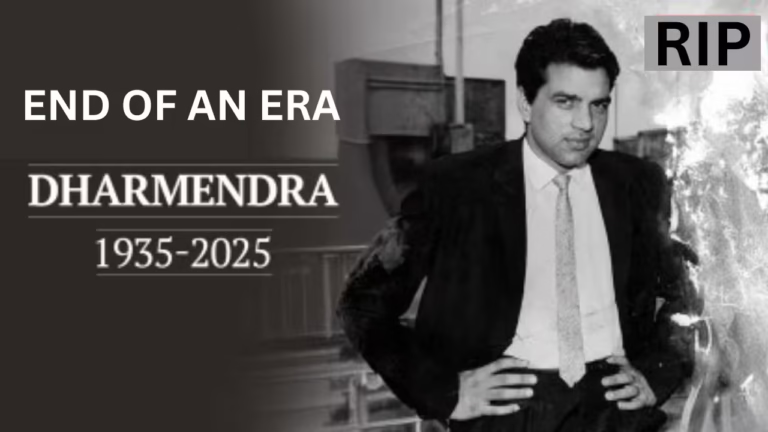
Donald Trump claims he ended six wars in six months, including the India-Pakistan conflict — a bold statement sparking global curiosity.
Published on: August 19, 2025 at 00:42
Former U.S. President Donald Trump has once again made headlines, claiming that he “ended six wars in just six months.” Among the conflicts he highlighted was the long-standing India-Pakistan dispute. While the statement quickly caught fire on social media and in political circles, experts and fact-checkers are divided over how much credit he truly deserves. Let’s dive deeper into what Trump said, the reality behind those wars, and what global analysts have to say.
Claim vs. Reality: What Trump Said—and What Actually Happened

Former U.S. President Donald Trump has been widely quoted claiming he “stopped six wars in six months,” often naming the India-Pakistan conflict among them. While he’s credited himself with global peacemaking, his claims have raised skepticism from experts and officials alike.
Also Read: PM Modi Speaks with Putin on Phone: Discusses Alaska Summit and India’s Call for Peace in Ukraine
Details & Expert Insights:
-
Trump cited conflicts such as India-Pakistan, Israel-Iran, and others between Cambodia-Thailand, DRC-Rwanda, Serbia-Kosovo, and Egypt-Ethiopia.
-
Fact-checkers, including PolitiFact, rated these claims “Mostly False.” Experts indicate he may deserve limited credit for easing tensions in Cambodia-Thailand, Israel-Iran, and India-Pakistan—but his role was overstated, and no permanent resolutions were created.
-
Specifically for India-Pakistan, while a May 10 ceasefire was declared, Indian officials rejected any U.S. mediation—calling the agreement bilateral—while Pakistani and U.S. voices suggested some U.S. involvement.
-
The overall expert consensus? Trump’s narrative is self-rewarding; nuanced facts tell a different story.
The India-Pakistan Ceasefire: U.S. Role or Bilateral Decision?
One of the most eye-catching parts of Trump’s claim was his mention of the India-Pakistan conflict. In May 2025, a ceasefire was announced between the two nuclear-armed neighbors after months of rising tensions along the Line of Control.
-
India’s Stand: New Delhi firmly rejected suggestions that Washington mediated the truce. Officials maintained that the ceasefire was a bilateral decision made directly between India and Pakistan.
-
Pakistan’s and U.S. Voices: Contrarily, some Pakistani leaders hinted that Trump’s administration played a behind-the-scenes role. The U.S. State Department also issued carefully worded statements suggesting America had “encouraged dialogue.”
-
Expert Consensus: Analysts argue that while Trump may have nudged both sides, it’s misleading to suggest the U.S. “ended the war.” At best, Washington acted as a quiet facilitator—not the architect of peace.
This distinction is important: mediating peace and claiming ownership of it are not the same thing.
Fact-Checkers and Experts Push Back
Independent fact-checking organizations like PolitiFact rated Trump’s sweeping claims “Mostly False.” Here’s why:
-
Partial Truths: Some of the conflicts he listed did see temporary ceasefires or moments of reduced tension.
-
Exaggeration: In most cases, Trump’s role was minimal or indirect. Local governments and regional leaders were the real drivers of the agreements.
-
Expert Views: Michael O’Hanlon of the Brookings Institution called Trump’s claims “major exaggerations” and “premature,” though he did acknowledge that Trump may deserve limited credit for easing tensions in a few cases.
In short, while Trump’s statements make for powerful campaign talking points, they do not reflect the nuanced and often fragile realities of international diplomacy.
A Claim That Sparks Debate, Not Certainty
Trump’s assertion that he “ended six wars in six months” is more political theater than documented history. Yes, he may have played a role in nudging certain countries toward dialogue, and in the case of India and Pakistan, his administration likely encouraged restraint. But calling himself the decisive force behind multiple global ceasefires oversimplifies complex geopolitical realities.
For readers, the takeaway is clear: always look beyond political claims, check the facts, and listen to expert voices. Trump’s words may spark headlines, but the truth—as always in geo





